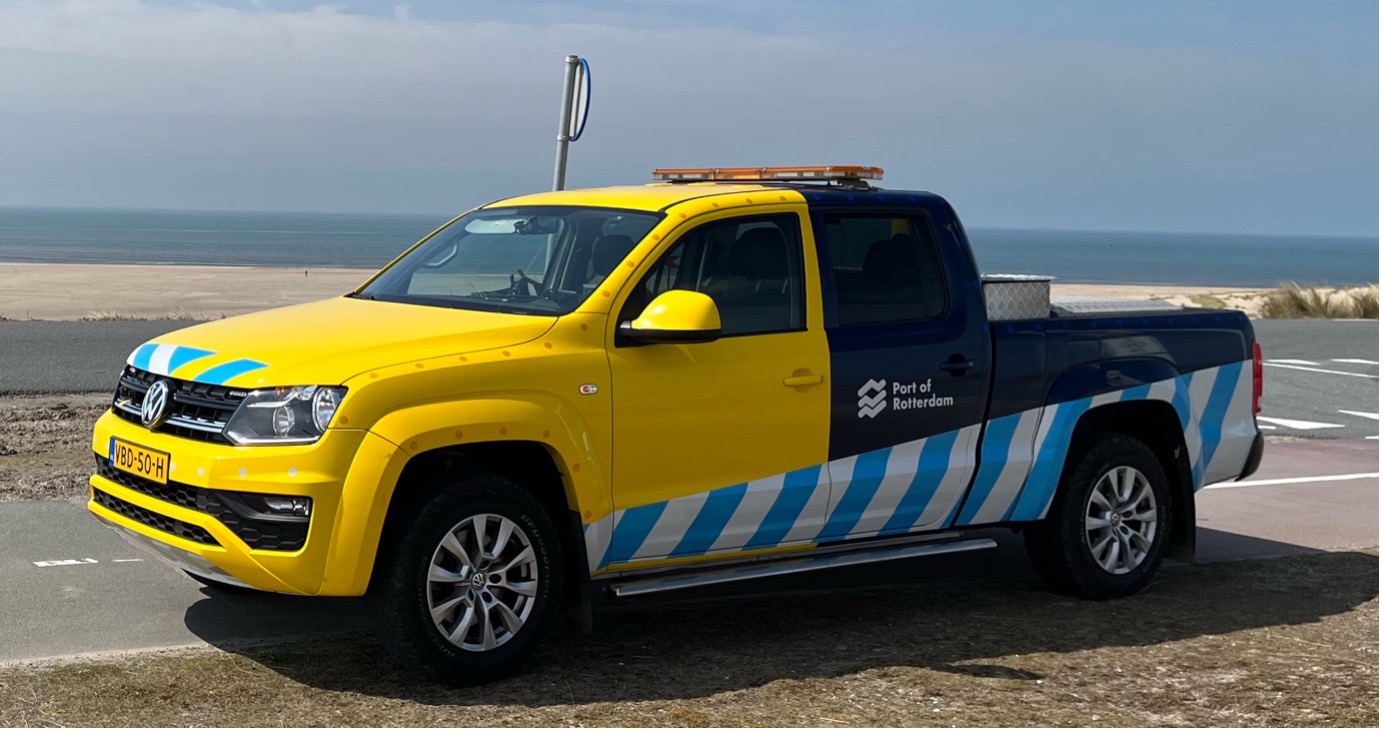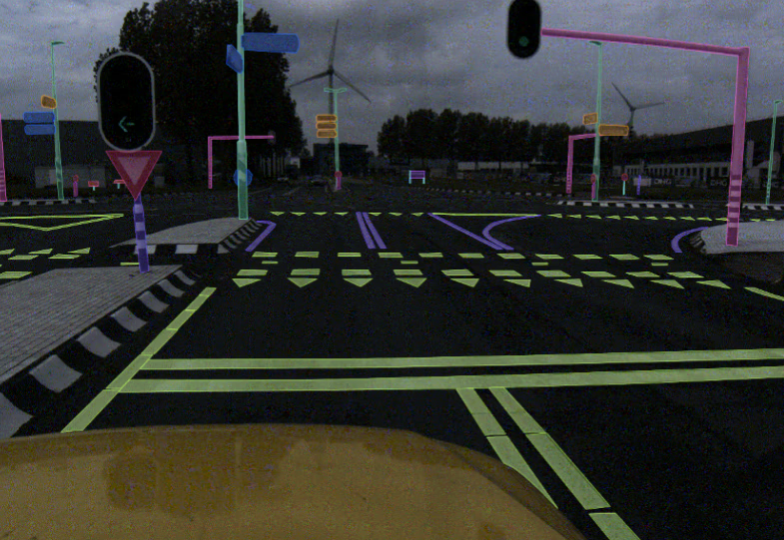Port of Rotterdam: Pioneering AI in Asset
The Port of Rotterdam asset management department spends considerable time and money on visual inspections, which involve taking photos of damaged assets, classifying the damage, and uploading findings.
To reduce costs, save man-hours, and increase inspector safety, the “Machine Learning Inspector” project was started. Car-mounted cameras film the environment as inspectors drive around the port, and AI processes and analyzes the video to detect and assess asset damage, focusing initially on assets visible from the car, such as traffic lights, corner blocks, and roads.

What was your biggest challenge?
The challenge was translating raw video footage and GPS signals into actionable data for asset managers to deploy repair teams. After a proof of concept, we needed a robust, reliable, and timely workflow. Dataworkz ML engineers and data scientists built a scalable video processing and AI platform.
How did you do it?
We split the analysis into steps: recognizing assets in video footage, attaching GPS coordinates by extrapolating the car’s GPS, and using expert models to assess damage. Results were saved in a database, and a user dashboard was built on top of it.
The model training and production pipelines ran on Kubernetes on Azure, orchestrated by Argo Workflows. Each step was tested extensively, and ample test footage of the port was recorded for model training.
What did you like best?

Results
We successfully transitioned from an experimental phase to a minimal viable product, which is now used and fine-tuned daily, increasing the efficiency and cost-effectiveness of asset management for the Port of Rotterdam.

Challanges on scaling with cloud applications
Cloud-managed machine learning services are great for experimentation but may lack the scalability, cost-efficiency, and customization needed for mature products, challenging performance and reliability at scale.

Making the right choices
Simplifying complex products requires ongoing diligence and thoughtful design, breaking systems into manageable components and maintaining clarity and usability.
Marlot Schoenmaker – Program Manager of Digital Transformation Asset Management
“The MLI project takes us a step further in the effective and objective inspection of large quantities of assets. Although it is a long-term process, we are fortunate to see that the journey itself has already led to remarkable and valuable insights. The MLI process brings knowledge areas closer together, which is of great value for a future-proof organization.”

